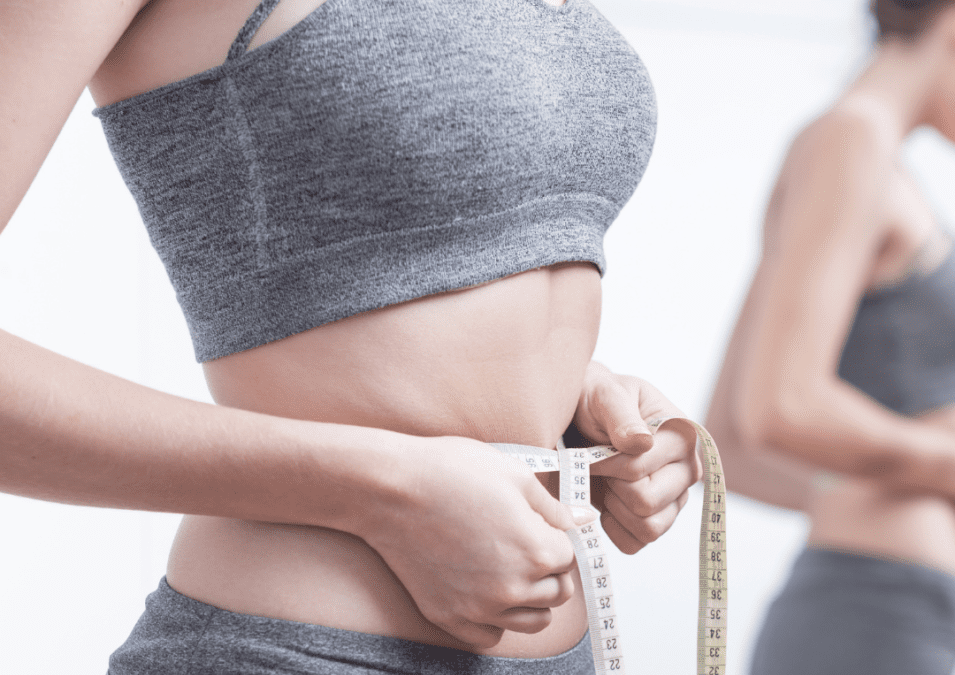Your Body Size Isn’t the Problem, Diet Culture Is.
In our society, we see diet culture almost everywhere we turn. We see it especially with increased social media platforms like Instagram and TikTok. We rarely (if ever) go through a single day without seeing an advertisement for a weight-loss supplement, an Instagram feed glorifying before-and-after photos, a clothing brand peddling one very narrow beauty ideal, or, at the very least, hearing someone offhandedly criticize their weight.
With this level of exposure, diet culture has crept into our daily lives at an alarming rate. Yet, it is so normalized and accepted that these messages are being mostly unknowingly internalized. This affects us and our general sense of worth and well-being to a greater extent than we may even realize.
But What is Diet Culture?
Diet culture messages train individuals to believe that not only does thinness and dieting equal health and happiness, but that this “health pursuit” makes one person superior to another.
It has become such a normal part of our society and culture that we often don’t even recognize it for what it is. Some of the unassuming ways diet culture presents itself are:
- People discussing their newest diet to lose weight
- Justification of eating what we want because we “haven’t eaten all day” or “had a intense workout this morning”
- The never-ending cycle of thought, “I’ll start my diet/exercise routine on Monday/tomorrow”
- Basing one’s self-worth on weight or clothing size
- Advertisements for weight loss products, diet programs or even exercise equipment that tell us we are not good enough if we are not pursuing weight loss or are not currently thin and/or muscular
- Complimenting others on their size, shape or weight loss
- Comparing our bodies to others’ and feeling either inferior or superior due to size or weight
Another way diet culture appears is through “fat-talk.” This has become prevalent in society. “Fat talk” is negative commentary about one’s own weight and food choices, or even that of others.
Some examples of fat talk include:
- I/You look fat in this dress
- That milkshake has way too many calories!
- I/You should not be eating this
- My/Your thighs are huge
- I/You need to go for a run after Thanksgiving dinner
- I/You was/were so bad earlier for eating that hamburger and fries!
We are led to believe that being thinner is better and that skinny equals attractive.

Where Does Diet Culture Come From?
The diet industry alone is 78 billion dollar market. So, it’s no wonder they have infiltrated so much of our advertising.
Despite the fact that nutrition and body physiology are all inherently unique, and therefore practices related to one individual’s diet cannot be applied to everyone, corporations use a “one-size-fits-all” approach when it comes to diet. This is because they can sell those packages at mass quantities.
The diet industry creates the problem by making you feel ‘less than’ for not meeting the unattainable beauty standard they designed through false advertising.
They then offer you a solution to that “problem” by peddling their diet programs, weight-loss supplements, shape wear, gym membership, exercise equipment etc. It’s a brilliant marketing strategy, but ethically shady at best.
Social media shares the blame for perpetuating diet culture. It has a tremendous impact on body image and a vast audience to influence. The edited and filtered images have been reported to encourage men and women to compare themselves to these heavily enhanced and often physically unachievable appearance ideals. These can have a serious negative impact on their well-being. Exposure to these images in the media has been associated with increased body dissatisfaction, lowered self-esteem, and body image related anxiety.

Diet Culture’s Vast Reach & Toxic Effects
Previous studies done by the National Eating Disorders Association (NEDA) found that approximately 80% of all 10-year-old girls have dieted at least once in their lives. Additionally, their research shows that 53% of 13-year-old girls take issue with how their bodies look, a percentage that rises to 78% when girls turn 17. And that between 40-60% of children ages 6-12 worry about how much they weigh and 70% in that same age range would like to slim down. These staggering statistics show just how affected even young children are by the toxic diet culture that constantly surrounds us.
And social media isn’t off the hook either.
According to a social media usage survey conducted in 2019, 90% of Americans ages 18-29 indicated that they use a form of social media daily. Because social media is so universal and influential in today’s society, posts can be impactful. Notably, a study reported that over 50% of the 2000 adults who were surveyed had previously edited their social media images in some way. Additionally, 70% of women, and over 50% of men ages 18-35 years reported editing their images regularly. This demonstrates a large amount of dissatisfaction in one’s true, original, and natural self to the point where altering the image seems ideal.
Combating the Effects of Diet Culture
Here are some practical ways you can push back on diet culture:
- Unfollow and unsubscribe from social media profiles, magazines, store advertisements, etc. that promote a very narrow ideal standard of beauty or push dieting, “fat-talk” or body shaming in any way or that make you feel like you need to change your body to be happy
- Follow body neutral accounts that encourage and promote health-at-every-size, body acceptance and show diverse body types
- Avoid “fat-talk” towards self and others
- Replace negative self-talk with positive affirmations; talking to yourself like you would a friend
- Recognize that thinness does not equal health
- Remember that most social media feeds are filled with people’s “highlight reels” and are heavily edited with filters and are therefore not an accurate representation of that person’s actual appearance or real life
- Remember that large corporations profit off of our feelings of insecurity related to body image; the belief that we have to be thinner or change our appearance benefits a multi-million dollar market
- Start a gratitude journal listing things you appreciate about your body
- Exercise because it feels good; not to burn calories, to make room for more food, or as a form of punishment
- Wear clothes that fit you; get rid of clothes that no longer fit you and/or that you don’t feel confident in
- Rest when you need it
- Surround yourself with people who support you and don’t criticize your appearance or weight
- Stop comparing yourself to others or even old pictures of yourself
- Think of the type of person you’ll be remembered for; the size and shape of your body won’t be part of that
- Increase self-care activities that are kind and nourishing to your body and mind
Interested in learning how a health coach could help you navigate and undo the effects of diet culture in your own life? Book your FREE 30-minute consult or first session with Emily Robinson today! There you’ll have the opportunity to ask any questions about the process and assess how health coaching may be beneficial to you.
About the author:
![]()
Emily Robinson is the founder of Abide Health Coaching. She is a certified Health Coach (CHC) and Yoga Therapist (CYT-500). Emily has worked with both private clients and in small groups; addressing specific health concerns such as: MS, cancer, alcohol addiction, eating disorders and Parkinson’s. She now specializes in working with clients who struggle with disordered eating and negative body image. Emily provides support for those who’ve completed treatment for an eating disorder who are reengaging in normal life; to help them maintain their recovery. She is partnered with the Anchor Wellness Center

